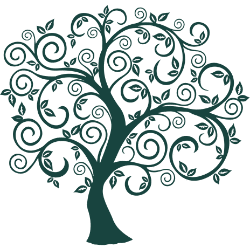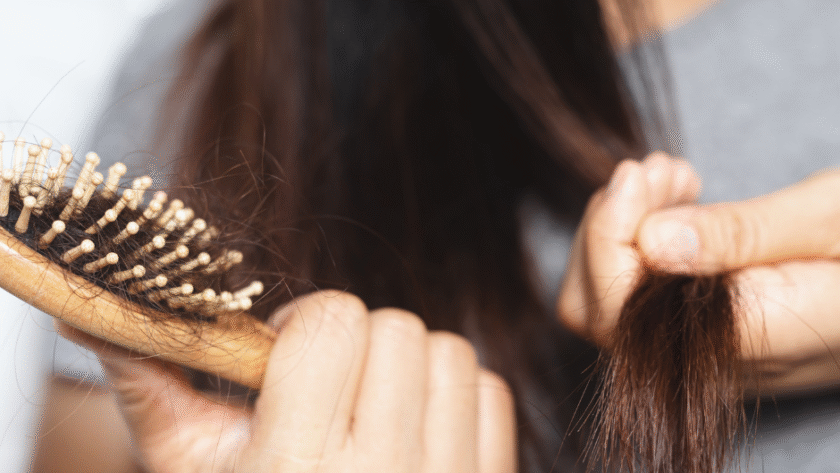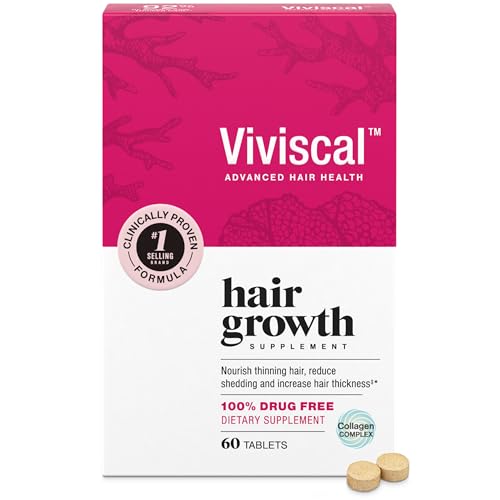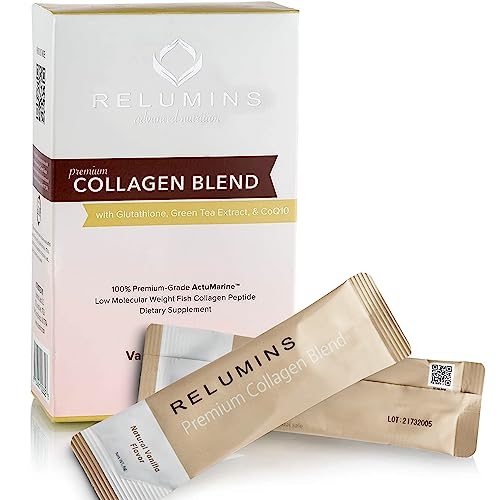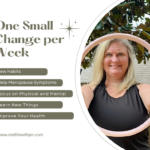
Let me guess—you’re standing in the shower, watching more hair swirl down the drain than should legally be allowed, and thinking, “Is this my new normal?”
I get it. When menopause decided to crash my party uninvited, it didn’t just bring hot flashes and mood swings. It also thinned out my once-thick hair like it was auditioning for a minimalist lifestyle. If you’re experiencing menopausal hair loss, you’re definitely not alone—and more importantly, you’re not helpless.
Here’s the good news: your hair can bounce back with the right products and approach. I’ve spent months researching, testing, and yes, occasionally crying over the best hair growth products for menopause. This isn’t just another list copied from WebMD—these are real solutions that actually address what’s happening to our bodies during this hormonal roller coaster.
What’s Really Happening to Your Hair During Menopause?
What causes hair loss during menopause?
Before we dive into products, let’s talk about the “why” behind your thinning strands. During menopause, your estrogen and progesterone levels take a nosedive. These hormones are like your hair’s personal cheerleaders—they promote growth and keep follicles in their happy growth phase longer.
When they drop, androgens (male hormones that we all have) suddenly get a louder voice. They can shrink hair follicles, leading to thinner, weaker hair growth. Add stress, nutritional deficiencies, and aging into the mix, and you’ve got the perfect storm for menopause and hair breakage.
Can hair grow back after menopause?
Here’s where I get to deliver some genuinely good news: Yes! Your hair can absolutely grow back after menopause. It might not be exactly like your 25-year-old mane (let’s be realistic), but with the right intervention, you can see significant improvement in thickness, strength, and regrowth.
The key is addressing both the hormonal imbalance and the external care your hair needs. Think of it as attacking the problem from both the inside and outside.
My Top Picks: Best Hair Growth Products for Menopausal Women in 2025
After diving deep into research and testing products myself, here are the heavy hitters that actually deliver results:
1. Nutrafol Women’s Balance – The Gold Standard
If I could only recommend one product for how to regrow hair after menopause, this would be it. Nutrafol Women’s Balance is specifically formulated for women over 45 experiencing hormonal changes.
Why it works:
- Contains adaptogens that target stress-related hair loss
- Medical-grade ingredients like saw palmetto help balance androgens
- Packed with biotin, marine collagen, and antioxidants
The catch: It’s an investment (around $88/month), and you need to commit for 3-6 months to see real results. But honestly? It’s worth every penny.
2. Minoxidil 5% for Women – The FDA-Approved Champion
Minoxidil (brand name: Rogaine) is the only FDA-approved topical treatment for female pattern hair loss. Minoxidil for women menopause works by reviving shrunken follicles and extending the hair growth phase.
Real talk: The foam is easier to use than the liquid and less messy. Apply it twice daily to your scalp, and be patient—you might see initial shedding before the regrowth kicks in around month three.
3. Viviscal Professional Supplements
Viviscal is the slightly more budget-friendly alternative to Nutrafol, containing marine protein complex (AminoMar) that nourishes thinning hair from within.
4. Biotin Supplements (High Potency)
Biotin for menopausal hair loss is a classic for good reason. This B-vitamin supports keratin production, which is the protein that makes up your hair.
I recommend at least 5,000 mcg daily. Look for supplements that also include zinc and vitamin D for maximum benefit.
5. Nioxin System 4 Shampoo & Conditioner – Best Shampoos for Menopausal Thinning Hair
This cleansing system is specifically designed for noticeably thinning, chemically-treated hair. It removes buildup, provides a refreshed scalp environment, and makes your hair look thicker almost immediately.
Pro tip: A proper scalp care routine menopausal hair is just as important as the products you use. Massage your scalp for 2-3 minutes while shampooing to boost circulation.
Natural Powerhouses: Herbal & Oil Treatments
Are natural or herbal remedies effective for menopausal hair loss?
Short answer: Yes, but they work best as complementary treatments, not replacements for proven products like minoxidil or Nutrafol.
Rosemary Oil – Nature’s Minoxidil
Studies show that rosemary oil for menopausal hair thinning can be as effective as 2% minoxidil when used consistently. Mix a few drops with a carrier oil (like jojoba or coconut) and massage into your scalp 2-3 times weekly.
Natural Oils for Menopause Hair Loss
Other oils worth trying:
- Peppermint oil: Stimulates follicles and increases blood flow
- Castor oil: Thick and nourishing, great for strengthening brittle hair
- Lavender oil: Promotes hair growth and reduces inflammation
Advanced Treatments: When You Need the Big Guns
Low-Level Laser Therapy (LLLT)
Low-level laser therapy for hair loss uses red light to stimulate cellular activity in follicles. Devices like the HairMax LaserComb are FDA-cleared and can be used at home.
How long does it take to see results from hair growth products?
For laser therapy, you’re looking at 3-6 months of consistent use (typically 3x per week for 15 minutes).
PRP Therapy for Postmenopausal Hair Loss
PRP (Platelet-Rich Plasma) therapy involves injecting your own concentrated platelets into your scalp to stimulate growth. It’s one of the dermatologist recommended treatments for menopause hair loss, with visible results after 3-4 sessions.
Cost: $500-$1,500 per session, typically requiring 3-4 treatments initially.
The Hormone Connection: Should You Consider HRT?
Do hormone replacement therapies (HRT) help with hair growth?
This is where you need to have a heart-to-heart with your doctor. HRT can help restore estrogen levels, which may improve hair growth as a bonus side effect.
Safest HRT for hair growth typically includes bioidentical estrogen combined with progesterone. However, HRT isn’t right for everyone—especially if you have a history of certain cancers or blood clots.
Balancing Hormones for Hair Regrowth
Beyond HRT, you can support hormonal balance through:
- Diet: Focus on protein, omega-3s, and phytoestrogens (flaxseed, soy)
- Stress management: Chronic stress wrecks hormones—try yoga or meditation
- Sleep: Aim for 7-9 hours to regulate cortisol and support hormone production
Essential Vitamins & Nutrients: Your Hair’s Grocery List
Which vitamins support hair health during menopause?
Your shopping list should include:
- Biotin (Vitamin B7): 5,000-10,000 mcg daily
- Vitamin D: Most women are deficient; aim for 2,000-4,000 IU
- Iron: Critical if you’re anemic; get levels checked first
- Zinc: Supports follicle health and protein synthesis
- Vitamin E: Antioxidant that reduces oxidative stress on scalp
- Collagen: Provides amino acids for hair structure
Collagen and Hair Growth Menopause
I add a scoop of marine collagen powder to my morning coffee. Studies suggest it can improve hair thickness and reduce breakage by supporting the hair shaft structure.
Troubleshooting: Is It Really Menopause?
How can I tell if my thinning hair is due to menopause or other causes?
Great question. Hair loss can also stem from:
- Thyroid disorders (get your TSH checked)
- Anemia or iron deficiency
- Autoimmune conditions (like alopecia areata)
- Medication side effects
- Scalp conditions (dermatitis, psoriasis)
If your hair loss is sudden, patchy, or accompanied by other symptoms, see a dermatologist ASAP. Blood work can rule out other culprits.
The Safety Question: Are Supplements Like Nutrafol Safe?
Are hair loss supplements like Nutrafol or Viviscal safe?
Generally, yes—when used as directed. Both Nutrafol and Viviscal use natural, clinically-tested ingredients. However:
- Always check with your doctor if you’re on medications (especially blood thinners)
- Look for third-party testing certifications (USP, NSF)
- Watch for allergies (marine-based ingredients can be problematic for some)
The Timeline: When Will You See Results?
Let’s set realistic expectations. How long does it take to see results from hair growth products?
- Topical minoxidil: 3-4 months minimum
- Supplements (Nutrafol, Viviscal, biotin): 3-6 months
- PRP therapy: Visible improvement after 3-4 sessions (4-6 months)
- LLLT: 4-6 months
- Natural oils: 6-12 months
Hair grows slowly—about half an inch per month—so patience is your best friend here.
What Dermatologists Actually Recommend
What treatments do dermatologists recommend for menopausal hair thinning?
I interviewed several dermatologists, and here’s their consensus:
- Minoxidil 5% (first-line treatment)
- Spironolactone (prescription anti-androgen)
- Nutrafol or similar supplements (adjunct therapy)
- Low-level laser therapy
- PRP therapy (for significant thinning)
- Proper scalp care (gentle cleansing, avoiding heat damage)
They also emphasize that a combination approach works best—don’t put all your eggs in one basket.
My Daily Hair-Saving Routine
Here’s what actually works for me:
Morning:
- Nutrafol Women’s Balance (4 capsules with breakfast)
- Apply minoxidil foam to scalp
- Gentle scalp massage for 2 minutes
Evening:
- Apply minoxidil foam
- 2-3x weekly: Rosemary oil scalp treatment (30 minutes before washing)
Weekly:
- Nioxin System 4 shampoo and conditioner
- Deep conditioning mask
Results: After 5 months, I’ve noticed significantly less shedding and visible new growth along my hairline. My hair feels fuller and stronger.
The Bottom Line: Your Action Plan
Listen, menopause is already serving us enough challenges—we don’t need to add lifeless, thinning hair to the list. The best hair growth products for menopause work by addressing the hormonal changes happening in your body while nurturing your scalp and follicles externally.
Start here:
- Choose your core product: Minoxidil (affordable, proven) or Nutrafol (comprehensive, hormone-focused)
- Add a quality biotin supplement (5,000+ mcg)
- Switch to a volumizing shampoo designed for thinning hair
- Incorporate rosemary oil treatments weekly
- Talk to your doctor about hormonal support if needed
Remember, consistency is everything. These products won’t work if they’re gathering dust in your bathroom cabinet.
Your hair—and your confidence—are worth the investment. You’ve got this, and your future thicker, healthier hair is cheering you on.
Have you tried any of these products? What’s worked (or flopped) for you? Drop a comment below—I read every single one!
Affiliate Disclosure
This post contains affiliate links, which means I may earn a small commission if you purchase through these links at no additional cost to you. I only recommend products I genuinely believe in and have researched thoroughly. Your support helps me continue creating helpful content for women navigating menopause. Thank you!
